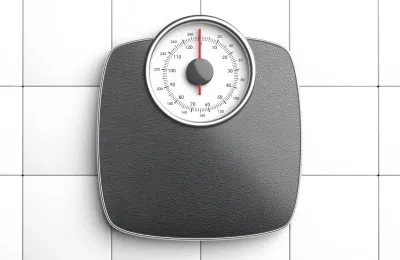Athlete Development Through Sleep: Boost Performance and Recovery
Chilipad Editorial Team • Jul 15, 2025

The Rest Factor: Episode Nine with Dr. Justin Lima
You can also listen to the full podcast episode with Dr. Justin Lima.
Key Takeaways
Sleep is a core part of athletic training, influencing recovery, learning, and long-term performance.
- Sleep supports athlete development by driving physical growth, muscle repair, and long-term training progress.
- Quality rest strengthens memory and motor learning, helping athletes retain new skills and techniques.
- Consistent, restorative sleep is linked to lower injury risk and reduced burnout from overtraining.
- Adequate sleep improves reaction time, focus, coordination, and overall athletic output.
- Teams and individuals who prioritize sleep as part of training often see stronger results both on and off the field.
Sleep is no longer just "rest time" for competitive athletes, it's a performance tool. In the landscape of athlete development, sleep is emerging as a foundational pillar.
Coaches and performance professionals are realizing that no matter how perfectly programmed a workout is, without quality sleep, recovery stalls and performance suffers.
Sleep for athletes is not a passive luxury; it’s an active contributor to elite performance. For those looking to optimize athlete development, understanding and integrating quality sleep into training is a competitive necessity, not an option.
In this week’s episode of The Rest Factor Podcast, we sit down with Dr. Justin Lima, president and CEO of Strength Coach Network and talk about why sleep is the glue holding athletic performance together.
Why Sleep Is the Unsung Hero of Athlete Development
Sleep plays a vital role in the long-term athlete development process and overall sports recovery. It influences everything from tissue repair and hormone production to emotional regulation and cognitive function.
During deep sleep stages, growth hormone is released, facilitating muscle recovery and building strength. Endurance, reaction time, and memory are also shaped significantly by quality rest.
As Dr. Justin Lima, a strength and conditioning expert, explained in the The Rest Factor Podcast:
You're breaking down your body when you are working out, but you're actually going to recover when you're away from me. And the thing that is going to help you recover the most is sleep, period.
Studies have shown that athletes who prioritize sleep can see noticeable improvements in speed, accuracy, and endurance. For instance, Stanford University’s basketball players improved sprint times and shooting accuracy by over 9% when sleep was extended to 10 hours per night.
Those stats aren’t coincidental, they’re physiological outcomes of better recovery habits.
Upgrade Your Recovery Game with Chilipad
Optimizing sleep isn’t just about hours; it’s about temperature, too. The Chilipad bed cooling system helps athletes achieve the best sleep climate for faster recovery, deeper sleep, and improved performance.
How Sleep Improves Athletic Performance
So how exactly does quality sleep translate to gains on the field, in the gym, or on the track? Let’s break down the science-backed ways sleep supercharges athletic performance.
Muscle Recovery Through Growth Hormones
Sleep helps repair microscopic muscle damage sustained during intense training. It does this mainly through the release of growth hormones, especially during deep sleep (slow-wave).
Athletes who don’t get enough of this stage suffer setbacks in both strength gains and adaptation.
Enhanced Cognitive and Motor Function
Proper sleep improves decision-making, reaction time, focus, and memory consolidation, all crucial for game-day success. Sleep-deprived athletes experience slower neural response times and poorer accuracy.
For example, tennis players experienced a 53% drop in serve accuracy after sleep deprivation.
Injury Prevention and Immune Support
Sleep is tightly linked to neuromuscular control and immune system regulation. Chronically fatigued athletes are more likely to suffer injuries and illnesses.
Data indicates that student-athletes who slept fewer than eight hours per night were 1.7 times more likely to suffer an injury than those who slept more.
Hormonal and Emotional Balance
Sleep impacts testosterone, cortisol, and other crucial hormones. A lack of sleep can elevate cortisol (the stress hormone), which hinders muscle growth, damages recovery processes, and contributes to overtraining syndrome.
Emotional resilience and mental clarity also plummet with poor rest.
The Role of Sleep Hygiene in Elite Athlete Development
Sleep hygiene refers to daily habits and environmental factors that influence sleep quality. For elite athlete development programs to be effective, they must instill routines that promote high-quality sleep.
Here are foundational sleep hygiene strategies:
- Maintain a consistent sleep-wake schedule, even on weekends.
- Avoid screens at least one hour before bedtime.
- Keep the bedroom dark, cool, and quiet.
- Avoid heavy meals, caffeine, or alcohol near bedtime.
- Consider establishing pre-sleep wind-down bedtime routines like reading, breathwork, or a hot shower.
Creating a Recovery-Centric Training Culture
A strength and conditioning plan should not view sleep as an afterthought. Coaches can build recovery and specifically sleep into their systems and environments through:
Education and Communication
Coaches should regularly discuss the importance of sleep with athletes. Bring in sleep specialists, host workshops, and share studies. Help athletes understand the science so recovery isn’t just compliance, it’s buy-in.
As Ana Marie Schick, host of The Rest Factor Podcast (link episode link), puts it:
When I changed my focus to that part of bodybuilding, that’s when I started realizing none of these courses, none of these even the continuing courses, addressed rest and recovery.
Regular Monitoring
Basic daily check-ins can make a huge impact. Asking questions like “How was your sleep last night?” opens key dialogues. If budget allows, leverage simple wearable tech or sleep diaries for data-informed decisions.
As Dr. Justin Lima detailed in the podcast:
On the lift cards, I printed in the bottom right hand corner for every day: How many hours did you sleep? Did you eat breakfast? Yes or no? Just start there. Low hanging fruit.
Recognize and Reward Recovery
Make sleep and rest behaviors as praiseworthy as a personal record. Highlight athlete stories where improved recovery contributed to enhanced performance.
Normalize naps, rest days, and early bedtimes as elite choices.
Schedule with Sleep in Mind
Avoid early morning practices after late-night games. Adjust schedules for travel, account for jet lag, and prioritize circadian alignment. Going to bed an hour early two nights before competition can yield 1–2 extra sleep cycles, a secret edge.

Recovery Tools Beyond Sleep: Building a Complete Athlete
While sleep remains the cornerstone, other effective methods can complement rest:
- Active recovery: Walking, stretching, or low-intensity movement can promote blood flow.
- Float therapy (REST): Shown to induce deep relaxation and improve overall sleep cycles.
- Cold Plunges: May reduce muscle soreness, though long-term performance benefits remain debated.
- Napping Strategically: 20-30 minute power naps counter the effects of partial sleep deprivation.
Balanced recovery ensures athletes avoid overtraining syndrome, a condition affecting 60% of elite competitors and characterized by fatigue, sleep trouble, appetite issues, and performance decline.
Integrating planned rest days (e.g., a 3:1 training-to-recovery ratio) can offset cumulative training stress.
Final Thoughts: Rest Is a Skill That Fuels Performance
The future of athlete development is holistic. It's not just sets and reps, it’s recovery, mindfulness, and smart lifestyle choices. Coaches and athletes who embrace rest as part of the performance formula are investing in resilience, longevity, and excellence.
Research shows that athletes who optimize sleep gain both a physiological and psychological edge. They're less injury-prone, recover faster, and perform better across disciplines, ages, and levels.
In other words, sleep doesn’t take time away from development. It multiplies the benefits of training. It’s the secret weapon of serious competitors. Training hard isn’t enough anymore. To build the complete athlete, you must train, rest, and repeat, intentionally.
The Rest Factor: Listen to Previous Episodes
You can also catch the full episode—and browse past Rest Factor podcasts—on your favorite podcast platform with just a click.
Common Questions About Sleep and Athlete Performance
Why Is Sleep Important for Athletic Performance?
Sleep helps athletes recover physically and mentally, enabling muscle repair, hormone balance, memory consolidation, and cognitive sharpness. It’s when the real growth occurs.
How Does Lack of Sleep Affect Athletic Performance?
Sleep deprivation results in slower reaction times, reduced strength, coordination issues, mood imbalances, and increased injury risk. Even one lost night can impair performance.
What’s the Importance of Deep Sleep in Muscle Recovery?
Deep sleep is the stage in which growth hormone is released, fueling tissue repair and rebuilding muscle. It’s absolutely essential for anyone engaged in resistance or endurance training.
How Can Strength Coaches Integrate Sleep into Training Programs?
Use sleep as a performance metric. Track it, discuss it, and plan around it. Educate athletes, encourage pre-sleep routines, monitor sleeping patterns, and adapt loads based on recovery data whenever possible.
What Are Some Actionable Sleep Hygiene Tips for Athletes?
- Set consistent sleep and wake times
- Create a calming bedtime routine
- Use blackout curtains and a white noise machine.
- Avoid screens, caffeine, and intense problem-solving in the evening









